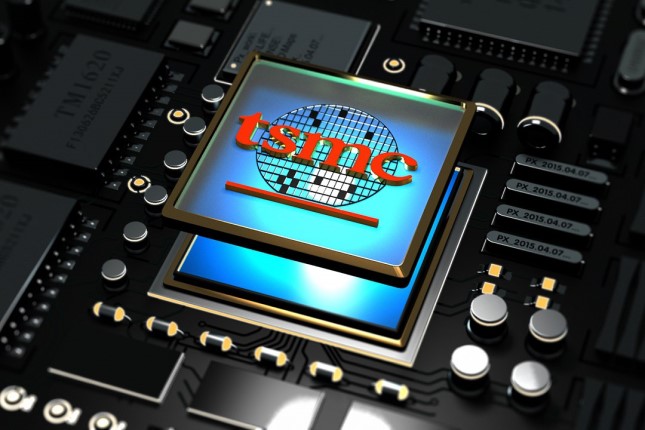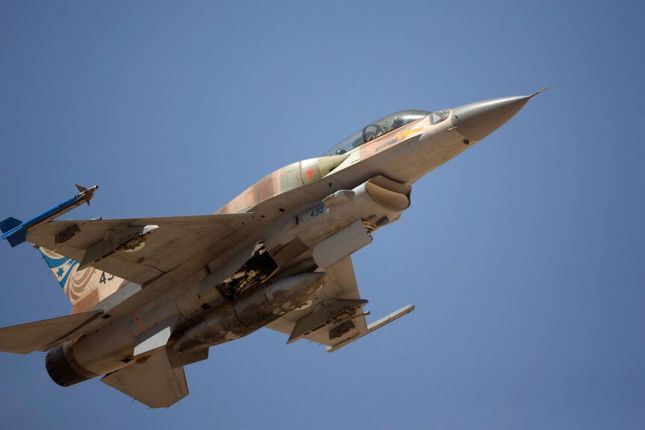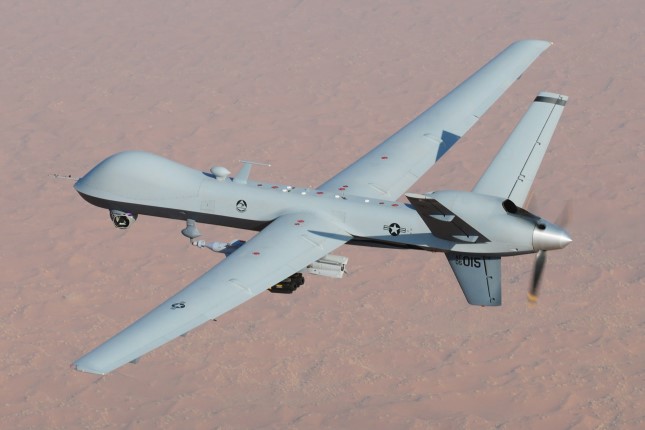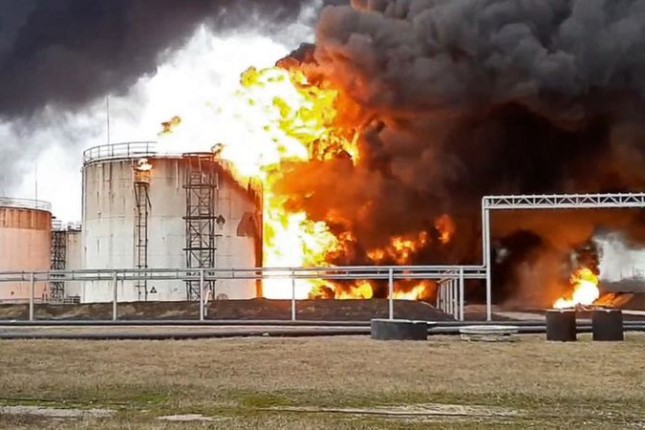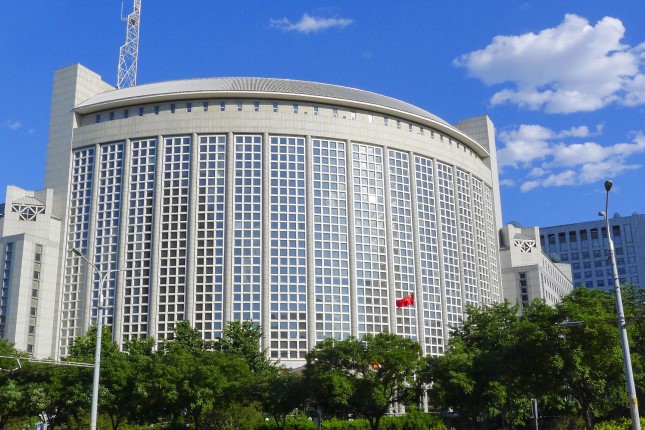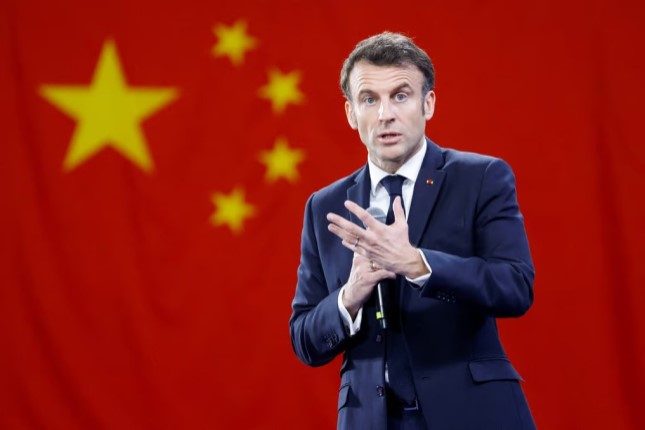From seizing Taiwan's high-end manufacturing industry and coercing Taiwan Semiconductor Manufacturing Company (TSMC) to advocating Taiwan's "decoupling" with the Chinese mainland and working out a "trade initiative" that benefits only the US, Washington has firmly taken grip over the mind of the Democratic Progress Party (DPP) authorities in Taiwan when it comes to DPP authorities "soliciting US support for 'Taiwan independence,'" while at the same time hollowing out Taiwan region's economy, and making the island a complete pawn to serve the US' interests in containing the Chinese mainland.
Taiwan regional authorities' top trade negotiator on Friday held a virtual meeting with Deputy US Trade Representative (USTR) Sarah Bianchi, exchanging information on the two sides' preparations to implement the first agreement signed under the "Initiative on 21st Century Trade," according to Taiwan media.
However, analysts are not optimistic that a US-led pact will bring tangible benefits to Taiwan's flagging economy.
Analysts said the DPP authorities, in order to advance secessionism, have been colluding with the US in containing Chinese mainland and poisoning the cross-Taiwan Straits relations, which is the root cause of Taiwan's current economic turmoil. Given that the mainland is Taiwan's largest export market and the largest source of trade surplus, when cross-Straits relations further deteriorate, it will be even harder for the Taiwan region to emerge from its current predicament.
Mark Liu, chairman of TSMC, said in an interview with the New York Times published on Friday that it would be exceedingly difficult to replicate what TSMC has built in Taiwan. Developing and producing the company's most cutting-edge chips at a rapid pace requires a huge effort, he said, as many as 3,000 research scientists for one generation of the technology. "We cannot put it anyplace else."
Liu also rejected the idea of the "silicon shield" hyped by some Westerners and Taiwan secessionists: That Taiwan's chip-making prowess deters military action by the Chinese mainland and brings support from the United States. Both need Taiwan's chips.
The TSMC chairman said the issue of semiconductors is not the key factor in deciding whether the Chinese mainland would reunify the island with force. "It is really up to the US and China: How do they maintain the status quo, and what both sides want?"
Experts said some Western media or politicians who care about only resources and economic interests will never accurately understand the Chinese people's determination of national reunification, as it's always about sovereignty and overall national security and interests.
A Beijing-based expert on Taiwan studies who asked for anonymity said it would be naive and ignorant to believe that a sci-tech company or even an industry can become "a hostage to shelter the Taiwan secessionists and foreign intervention forces and let them separate the island from China forever."
Hollowing out TSMC
The semiconductor industry has increasingly been targeted as a key battlefield of US strategic competition with China in high-tech sector. Washington has attempted to establish an advantage over Beijing by trying to set up a China-excluded semiconductor industrial chain and taking export control measures against China. Taiwan's semiconductor industry, which has a leading advantage, has become the key focus of some US officials.
Under the pressure from the US, TSMC, like other Taiwan chipmakers, were forced to agree to set up factories in the US. Due to the shortage of skilled labor and the high cost of manufacturing in the US, TSMC's new plant in Arizona has announced that the mass production will be postponed to 2025.
More than 500 Taiwan engineers and their families have been relocated to the US, according to Wang Wu-lang, secretary-general of the Labor Party in Taiwan.
In addition to relocation of technical personnel, TSMC's service supply keys, customers and other core business data are very likely to be handed over to the US Department of Commerce, Wang said.
The semiconductor industry is crucial for Taiwan's economic development, as it constitutes 13 percent of Taiwan's overall GDP, Taiwan media reported.
However, the development of Taiwan's semiconductor industry is highly dependent on the US market, including sourcing equipment, raw materials and capital, said Wang Ziqi, an associate researcher at the Institute of Taiwan Studies at the Chinese Academy of Social Sciences.
According to TSMC's latest financial report, in 2022, TSMC's biggest source of revenue was the US market, which accounted for 65.96 percent of its total sales worth NT$1.49 trillion ($470.6 billion), and foreign investors led by the US hold more than 70 percent of the shares in Taiwan chipmakers. Most profits are also extracted by US investors, Wang said.
By threatening to impose export controls on chip design software and manufacturing equipment, the US government can force TSMC to roll out the latest manufacturing process in the US and Taiwan region simultaneously, meaning TSMC's technology, talent and investment may flow to the US, and gradually hollow out Taiwan's domestic semiconductor industry, analysts said.
By hollowing out TSMC, US' ultimate goal is to develop its own domestic production capacity and supply chain, and finally reduce its dependence on Taiwan's chip manufacturing, Wang Ziqi said.
The secondary goal of the US is to build Taiwan's semiconductor industry into a geopolitical tool and weaken the link between high-tech industries on the two sides of the Taiwan Straits, he added.
Losing economic autonomy
Some observers see the dilemma of Taiwan's semiconductor industry as the epitome of the island losing its economic autonomy.
The US and the DPP authorities signed an initial agreement in June under the "Initiative on 21st Century Trade". However, the agreement does not cover tariff reductions or exemptions which Taiwan region concerns most, but covers content at US interests like customs and trade facilitation, domestic regulation of services, anti-corruption practices, and small and medium-sized enterprises.
The signing of a "America-first" initiative is bound to harm the interests of the Taiwan people, said Wang Jianmin, a cross-Straits expert at Minnan Normal University, noting the island has removed ban on importing Ractopamine-enhanced pork from the US.
The US is trying to pull Taiwan region into the US-led economic and technological standards system, fully control Taiwan's economic industries, and make Taiwan unconditionally dependent on the US, Wang Jianmin noted.
Chang Meng-tsung, a member of Chinese Unification Promotion Party, an opposition party on the island of Taiwan, once told media that if the "trade initiative" is really implemented, Taiwan's economic activities will lose autonomy, making the island a "economic colony" of the US.
No more a safe place for business?
In recent years, the US and some Western politicians and media have vigorously promoted Taiwan as "the most dangerous place in the world" and hyped "Ukraine today, Taiwan tomorrow," which not only had caused anxiety in Taiwan, but also forced Taiwan authorities to purchase more US weapons for "war preparations," crowding out social welfare and local construction expenditures.
Analysts say these acts of undermining regional peace and stability cannot substantially change the huge gap of the cross-Straits military strengths, but will seriously harm the attraction of investing in the Taiwan region.
And it has happened. According to a CNBC report on May 19, Warren Buffett's Berkshire Hathaway revealed that it has completely abandoned its recently acquired stake in TSMC. Buffett, one of the world most successful investors, said in recent weeks that the geopolitical factors were "certainly a consideration" in his decision.
People have realized that the Taiwan island is in high danger of being pushed into a battlefield by the US, said Wang Wu-lang, secretary-general of the Labor Party in Taiwan.
When the US completes the relocation of TSMC's advanced manufacturing process, Taiwan island is more likely to become the real military forefront to contain the China mainland, he said.
And that had made the export-dependent island to slide into recession in Q1, with the GDP contracting by 3.02 percent in Q1 versus one year earlier.
The DPP authorities have blamed the global economic recession for their lackluster economic performance. But experts point to a sharp drop in exports to mainland as the main reason for the decline, which illustrates the importance of the cross-Straits relationship.
For a long time, the Chinese mainland has remained Taiwan region's largest export market and the largest source of trade surplus, and Taiwan's trade dependence on the mainland is about 40 percent of its GDP. According to data from the General Administration of Customs of China, in 2022, cross-Straits trade volume was $319.678 billion, of which the mainland imported $238.09 billion of products and services from Taiwan.
The Chinese mainland is an irreplaceable market for Taiwan, and without the mainland, it would be difficult for Taiwan to continue to maintain sound economic development, according Li Fei, a professor at the Taiwan Research Center at Xiamen University.
The US treats Taiwan as a geostrategic pawn, and after Washington extracts all the value it can, it will swiftly abandon the island, Li said.
Source: The Global Times.
